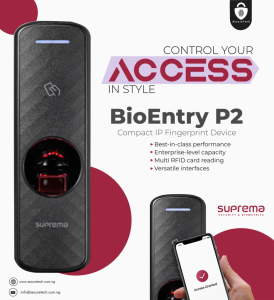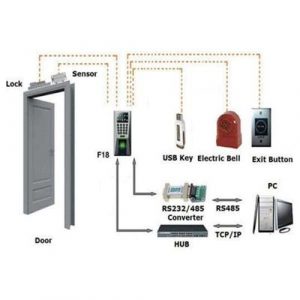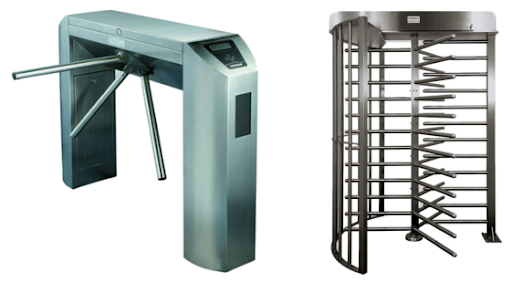ALL YOU NEED TO KNOW ABOUT ACCESS CONTROL DEVICES
In a variety of machines, access control is a security solution that regulates who or what can view or utilize resources. It is a basic security concept that reduces the risk to the company or organization. It involves whosoever is granted entry and exit, the time factor of their entry and exit, and where they are granted access for entry. This is accomplished through the use of keys and locks.
Organizations utilize electronic access control systems to track employee access to restricted company locations and private regions, such as data centers, using user credentials, access card readers, auditing, and reports. Some of these systems have access control panels, alarms, and lockdown capabilities to prevent unauthorized entrance to rooms and buildings.
By analyzing required login credentials, such as passwords, personal identification numbers (PINs), biometric scans, security tokens, or other authentication elements, access control systems conduct identification, authentication, and authorization of individuals and entities. MFA, which needs two or more authentication factors, can be frequently used as part of a layered security strategy.
HOW DOES IT WORK?
These security measures work by identifying a person or entity, confirming that the person or application is who or what it claims to be, and approving the access level and set of actions associated with the login or IP address.
TYPES OF ACCESS CONTROL
- Biometric Access control system: The Biometric Access Control System is a fingerprint-based time attendance system that tracks and records data from visitors and employees using its Access Software. Because of its ease of installation and superior security, it is widely employed in sensitive areas. Instead of using a card system,

Learn more about this device
a biometric access control system uses fingerprints to get access. The Access Control System not only allows admission but also provides information about who has entered. The Attendance Software can be coupled with any current payroll software to provide an automatic record of data supplied by the Attendance System, saving time and money in the process.
2.Proximity Access Control System: The proximity access control system is a more private type of access control. It ensures a safe working environment and is commonly used in offices, factories, and banks, among other places.

Learn more about this device
There are over 50 different time zone options and five different open-door groupings.
3.Door Access Control Systems: The access control Door Opening and Closing System is a small, low-cost stand-alone device. It’s a ready-to-use, simple-to-install device. With simple instructions, any electrician can install the electromagnetic lock. It’s common in offices, server rooms, homes, airports, defense, and data centers, among other places. Based on the size of the business and the varying degrees of security, access control systems within a building may be linked or standardized. It’s appropriate for use in homes, offices, and other access control situations. Traditionally, access control systems are managed from a central place.

In a door access control system, an administrator allows access to a person with the settings integrated into the administration software and a key that opens all of the doors in a building, updating the information within the system and giving each user a unique identity.
Features :
- Provides High Security
- Fast and Perfect Authentication (less than 1 sec.)
- High-performance, maintenance-free
- Reduces administrative costs.

The link between a plastic card and electronic access control locks is the basis of key card systems. In comparison to other access control systems, it has fewer components. It’s as depicted in the diagram below.
Features of Smart Card Reader :
- Compact Designing, ABS Housing
- Up to 50,000 Punch Storage Capacity
- Up to 99 Terminal Networking
- Programmable IN/OUT Setting
- Up to 10,000 Employee Database Can be Stored with Employee name
- 16X4 LCD Display for Date, Time, Employee Name, Card Number
- Switch Mode Power Supply (SMPS)
- Connectivity Through Rs232, Rs485, TCP/IP, Modem
- Online Data Transfer
- Voice Messaging
Security Access Control System:
There are numerous alternatives in a security access control system, such as burglar alarm systems, fire, and carbon monoxide detection systems, closed-circuit TV video systems, card access, and automation systems, that may be customized to match each individual and family’s demands. The systems are made up of sensors located throughout the house that connects with a central control unit. To monitor, the control unit is linked to an alarm, an automatic telephone dialer, or an Internet connection.

There are numerous alternatives in a security access control system, such as burglar alarm systems, fire, and carbon monoxide detection systems, closed-circuit TV video systems, card access, and automation systems, that may be customized to match each individual and family’s demands.
The systems are made up of sensors located throughout the house that connects with a central control unit. To monitor, the control unit is linked to an alarm, an automatic telephone dialer, or an Internet connection.
A wired security system uses low-voltage wires to connect devices, whereas a wireless security system uses tiny radio transmitters to send signals to the central control unit. All these control units have batteries and if there is a power failure or if the wires are cut many systems have batteries that automatically recharge when the unit is online with the household power.
BOOK YOUR CONSULTATION WITH US AT SECURETECH NIGERIA

